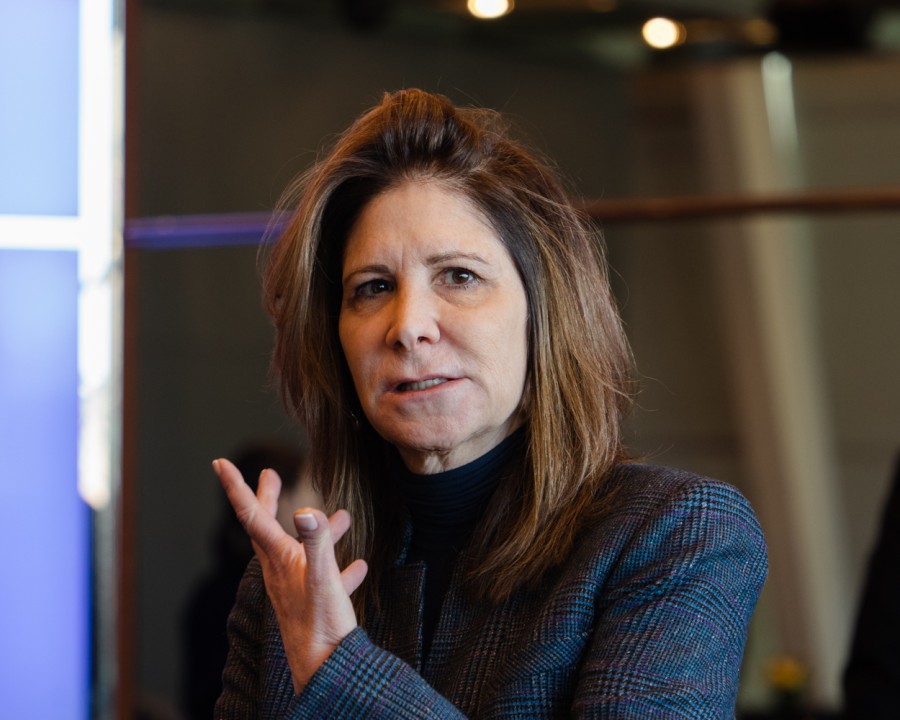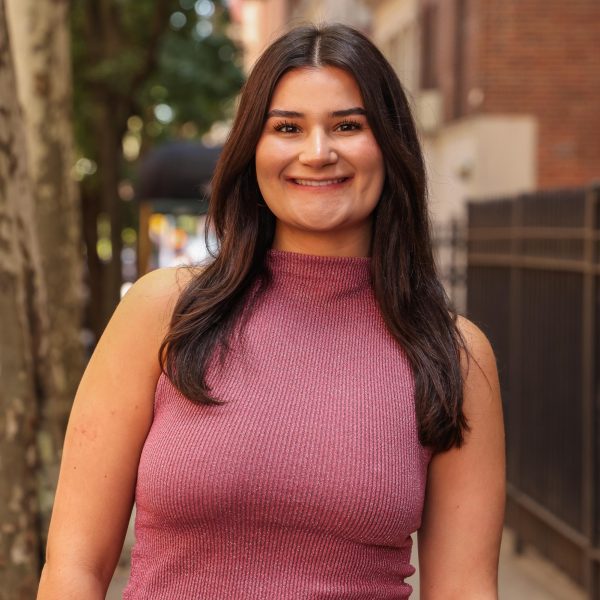Linda Mills on NYU’s expansion plans, on-campus unions and more
President-designate Linda Mills spoke to WSN about what challenges she expects to face in her upcoming term, and what the future holds for NYU.
(Kevin Wu for WSN)
March 30, 2023
As president-designate Linda Mills nears the beginning of her term, she faces challenges to university admissions practices across the country, demands from on-campus unions, upcoming federal decisions on sexual harassment and discrimination policies in education and much more.
Mills, who was selected as the university’s next president on Feb. 15 by the board of trustees, will be NYU’s 17th president, and the first woman to lead the university. She is currently NYU’s vice chancellor and senior vice provost for global programs, so oversees the university’s campuses abroad. She has been with the university for 24 years, during which she was a chaired professor at the Silver School of Social Work, a vice provost and a senior vice provost before taking on her current role in 2012.
In an email interview with WSN, Mills discussed the university’s real estate expansion plans, relations with on-campus unions and the university’s stance on an upcoming Supreme Court decision that will determine whether race-sensitive college admissions are constitutional.
This interview has been edited for length and clarity.
A Supreme Court case that will determine whether universities can consider applicants’ race during the admissions process is expected to be decided by June, the month before Mills becomes president. Current NYU president Andrew Hamilton has raised concerns over the case in the past, calling it “the most consequential case for higher education in nearly 20 years.” The American Council on Education, which includes NYU, also filed a joint statement in support of race-sensitive admissions alongside 37 other academic institutions.
WSN: What challenges do you see arising during your term, and how do you plan to address them?
Mills: Challenges facing NYU include maintaining academic excellence in all forms including our commitment to global education, continuing to support faculty to secure research funding, knee-jerk attacks on the arts and humanities, controlling the cost of higher education, ensuring our students are successful and cultivating a sense of belonging for all our community members. The coming Supreme Court ruling on affirmative action is potentially a major challenge to anyone who believes in the importance of universities as engines of social mobility and of diverse learning environments. Needless to say, we are, of course, preparing for whatever decision comes. Our commitment to creating a diverse, equitable and inclusive community is unwavering.
NYU’s decades-old 2031 expansion plan, the main focus of which was constructing the new Paulson Center, is the predecessor of the university’s Core Plan. The 2031 plan, which was first proposed by former president John Sexton in 2007, aimed to add approximately six million square feet of building space to campus.
The development plan has also led to a battle between Greenwich Village residents, the university and the city over a local supermarket, Morton Williams. During the approval process for the Paulson Center in 2012, NYU came to an agreement with New York City’s School Construction Authority.
The university agreed to give the SCA its plot at the corner of Bleecker Street and LaGuardia Place, the location of the supermarket, for the construction of a school. The agreement required that the SCA confirm it would use the plot by the end of 2014, a deadline that has since been extended twice to 2021, leaving residents worried over the supermarket’s future.
In November 2022, the SCA established plans to use the plot, reigniting concerns that the supermarket would be destroyed. Later, the university promised to find a nearby location for the Morton Williams if it must be demolished to build the school.
WSN: What does the university plan to do with the facilities detailed in NYU’s 2031 expansion plan?
Mills: At the moment, NYU has no specific plans for moving forward with any of the other proposed facilities in the original “2031” plan, although the City’s School Construction Authority has the legal option to build a public school on the southeast corner of Bleecker and LaGuardia, where the supermarket now stands. We have been working with local elected officials and City officials to find, in the event that the City does move forward with construction, a long-term solution that would allow a school to be built while still preserving the grocery store at or near the current location.
Several times since February, members of NYU’s contract faculty union have rallied outside of Bobst Library, where Hamilton’s office is located, to demand voluntary recognition from the university. Administrators met with union organizers on March 16, and the university promised the union a response sometime in the following week, but organizers with the union were frustrated by the university’s prolonged response.
WSN: In light of recent contract faculty union protests, how do you plan to work with campus labor unions?
Mills: I believe that all employees of NYU, unionized or otherwise, should be treated with dignity, and want to reiterate that NYU respects and values their contributions. In our bargaining with the collective bargaining units on campus, our overarching goal is always to achieve agreement on a good contract that honors the contributions these employees make to our academic mission and campus community.
Contact Bruna Horvath at [email protected].


























































































































































